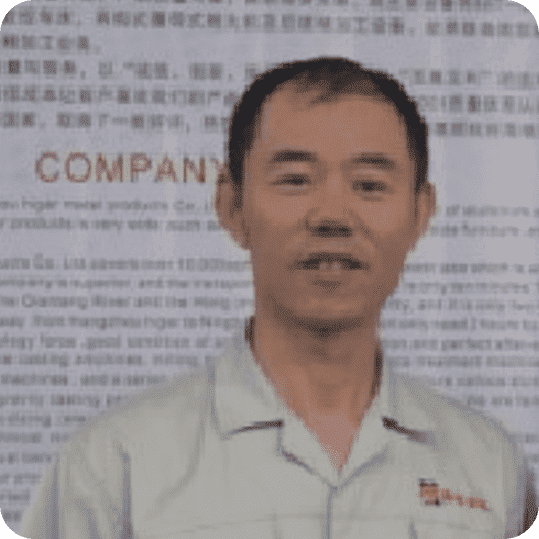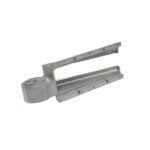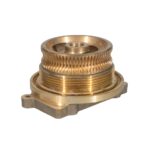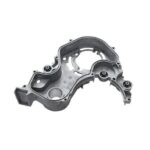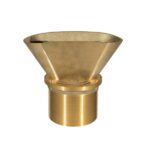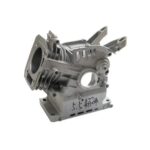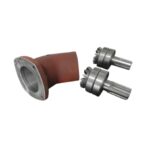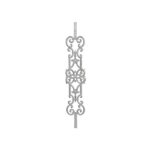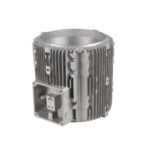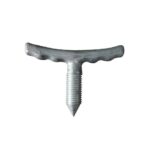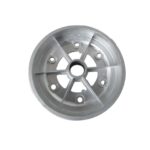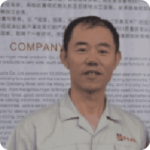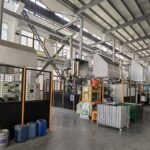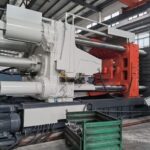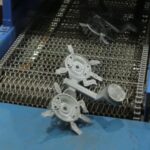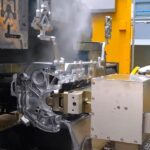Introduction
CNC milling, a cornerstone of modern machining, has revolutionized the manufacturing industry by enabling the production of complex, high-precision parts.
Whether you’re an engineer, manufacturer, or innovator, understanding the CNC milling process can enhance efficiency and precision in your projects.
This guide delves into milling machining processes, highlights its benefits, and explores materials and suitable operations for your next manufacturing venture.

What Is CNC Milling?
CNC milling, or Computer Numerical Control milling, is a subtractive manufacturing process where a rotating cutter removes material from a workpiece to achieve the desired shape. Controlled by CNC programs, the process ensures high precision and minimal errors.
Key features include:
- Automated Production: Continuous operation with minimal human intervention.
- Multi-Axis Movement: From 3-axis to 5-axis configurations for intricate designs.
- Versatility: Suitable for various materials and complex geometries.
Searching for High-Quality for Cast Aluminum Parts?
You’ve come to the right place! Yongzhu Casting is a certified die casting manufacturer with over 20 years of expertise in the industry.
We have successfully completed numerous die casting projects for Aluminum casting parts, particularly in your industry.

Zhejiang Yongzhu Casting Technology Co., Ltd.
Location: Zhejiang, Shaoxing
Company type: Manufacturing
Year Founded: 2004
Main Products: Aluminium die casting, Mold Making, Die Casting, Sand Casting, Gravity Casting
Leading Chinese producer Yongzhu Casting is formerly known as Hangzhou Higer Metal Products Co., Ltd., was established in 2004.
With 20 years of experience in the industry, we are a specialized manufacturer in Aluminum casting and Machining.
Our products are widely used in various applications such as Automotive, Energy, Lighting, Medical, Home Furnishings, Machinery & Equipment etc. Below is one of our products.
It’s worth mentioning that the evolution of rapid logistics has transformed how industries approach purchasing. Aluminum casting orders can now be sourced from overseas suppliers efficiently.
For instance, working with YONGZHU CASTING, you can inquire, order, and even find better value than your local options—all while maintaining assured quality.
Design Review & DFM Support
Our professionals will evaluate your designs and provide suggestions for cost savings. Additionally, we offer Design for Manufacturing (DFM) assistance and conduct mold flow analyses to facilitate efficient production.
State-of-the-Art Manufacturing Equipment
Our facility is equipped with advanced hot-chamber and cold-chamber die casting machinery for aluminum and zinc production.
We also utilize high-precision CNC machines in a temperature-controlled workshop, featuring 3-Axis, 4-Axis and 5-Axis setups to manage any project you have.
Rigorous Quality Control Measures
Our dedicated quality control team ensures that all parts meet the highest standards of quality and consistency. We employ high-accuracy measurement instruments, including CMM, spectrometers, and X-ray detectors.
Comprehensive Surface Treatment Options
We provide a variety of surface finishing techniques for your precision die casting components. Our in-house services include cleaning, polishing, anodizing, shot blasting, and painting.
Flexible Project Acceptance
While larger manufacturers often shy away from low-volume projects, and smaller ones may struggle with quality, Yongzhu Casting stands apart. We prioritize customer satisfaction and willingly accept high-mix, low-volume projects like yours.

Step-by-Step CNC Milling Process
Step 1: Designing
- Create a 2D or 3D CAD model of the desired part.
- Ensure the design is precise yet optimized for milling.
Step 2: Translating Design to CNC Code
- Convert CAD files into machine-readable CNC code.
- Test and amend the code for smooth operations.
Step 3: Machine Setup
- Secure the workpiece on the milling table.
- Verify tool alignment and calibration.
Step 4: Production
- Engage the cutting tool to remove material.
- Monitor the machine for quality assurance and adjust as needed.
Benefits of CNC Milling
- Unmatched Precision
- CNC milling achieves tolerances as tight as ±0.001 inches, making it indispensable in industries like aerospace and medical.
- High Productivity
- Automated operation enables continuous production, even for large batches.
- Cost Efficiency
- Requires minimal labor, reducing operational costs while maintaining high quality.
- Complex Geometries
- From intricate medical implants to advanced aerospace parts, CNC milling handles diverse shapes and sizes with ease.
- Material Compatibility
- Suitable for aluminum, steel, brass, and exotic metals, among others.
Types of CNC Milling Operations
Form Milling
- Ideal for curved surfaces and contours.
- Requires specialized tools for precision cuts.
Plain Milling (Surface Milling)
- Uses horizontal cutters for flat surfaces.
- Narrow cutters for deep cuts; wide cutters for broad areas.
Face Milling
- Axis perpendicular to the workpiece for superior surface finishes.
Angular Milling
- Removes material at specific angles, suitable for bevels and angled edges.
Materials Suitable for CNC Milling
CNC milling excels with a variety of materials:
- Aluminum: Lightweight and corrosion-resistant, ideal for aerospace and automotive.
- Stainless Steel: Durable and heat-resistant, suitable for industrial components.
- Brass: Known for machinability and electrical conductivity.
- Copper: Excellent thermal and electrical conductor.
- Tool Steel: High strength and durability for heavy-duty applications.
Comparison of CNC Milling with Other Processes
| Feature | CNC Milling | Turning | Grinding |
|---|---|---|---|
| Precision | ±0.001 inches | ±0.005 inches | ±0.0001 inches |
| Material Removal | Subtractive with rotating cutters | Subtractive with lathe tools | Subtractive with abrasive tools |
| Applications | Complex shapes, slots, holes | Cylindrical parts | Surface finishing |
| Automation | Fully automated | Semi-automated | Manual/automated |
| Cost | Moderate | Low | High |
Practical Applications of CNC Milling
- Aerospace
- High-precision components for jet engines and structural elements.
- Automotive
- Engine blocks, transmission parts, and custom prototypes.
- Medical
- Custom implants, surgical instruments, and diagnostic equipment.
- Electronics
- Heat sinks and enclosures for sensitive components.
- Consumer Goods
- Durable components for appliances and recreational equipment.
Optimizing Your CNC Milling Projects
- Select the Right Material: Match the material to the part’s requirements.
- Choose the Correct Operation: Identify whether face milling, plain milling, or another operation fits your design.
- Partner with Experts: Collaborate with experienced CNC milling manufacturers for reliable results.
FAQs
1. What is CNC milling?
CNC milling is a machining process that removes material using rotating cutters controlled by computer programs.
2. What materials can be milled?
CNC milling works with metals like aluminum, brass, steel, and even plastics.
3. How precise is CNC milling?
It achieves tolerances as tight as ±0.001 inches, ensuring exceptional accuracy.
4. What are the advantages of CNC milling?
High precision, versatility, automation, and suitability for complex geometries.
5. Is CNC milling suitable for mass production?
Yes, its automation makes it ideal for high-volume manufacturing.
6. What is the difference between face and plain milling?
Face milling achieves finer surface finishes, while plain milling focuses on broader surface cuts.
7. How do I choose a CNC milling supplier?
Look for expertise, advanced machinery, and a track record of quality production, like Yongzhu Casting.
8. Can CNC milling handle complex shapes?
Yes, it excels in creating intricate designs and complex geometries.
9. What industries use CNC milling?
Industries like aerospace, medical, automotive, and electronics heavily rely on CNC milling.
10. What is the cost of CNC milling?
Costs vary based on material, design complexity, and production volume.
Conclusion
CNC milling combines precision, versatility, and automation, making it a cornerstone of modern manufacturing. Whether for aerospace, medical, or consumer goods, CNC milling enables high-quality production with unmatched efficiency. Partner with Yongzhu Casting for expert CNC milling services tailored to your unique needs.

